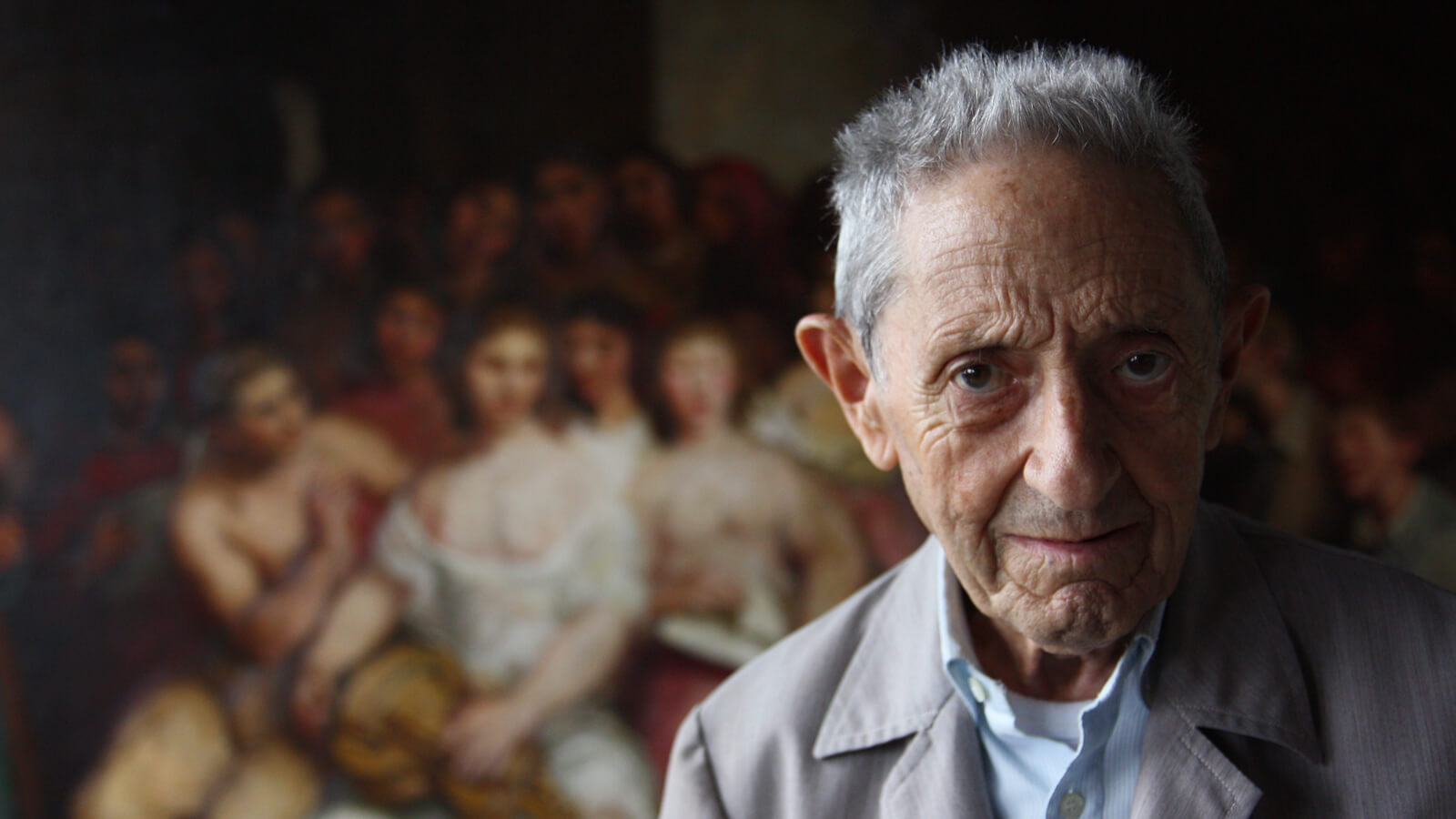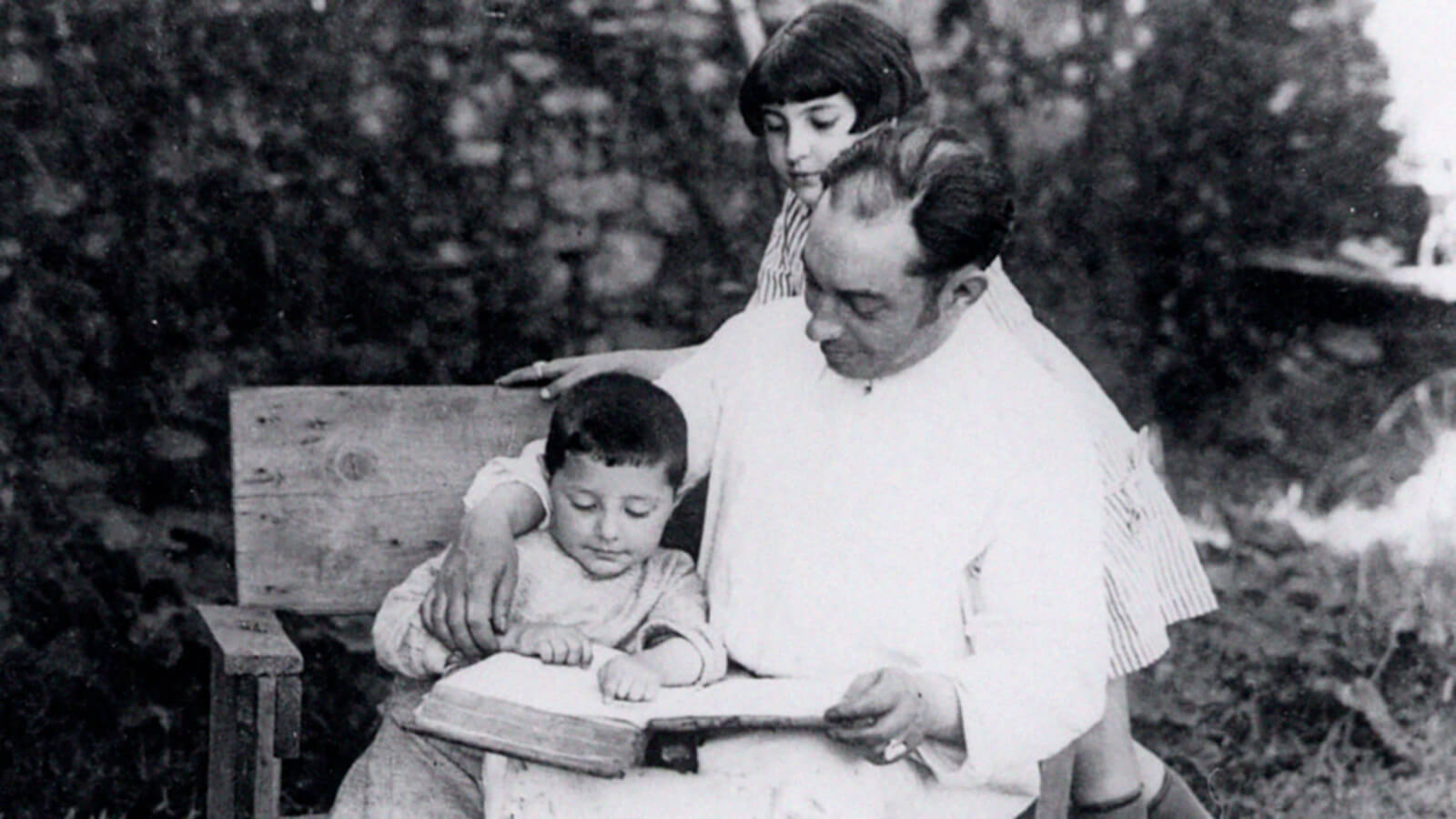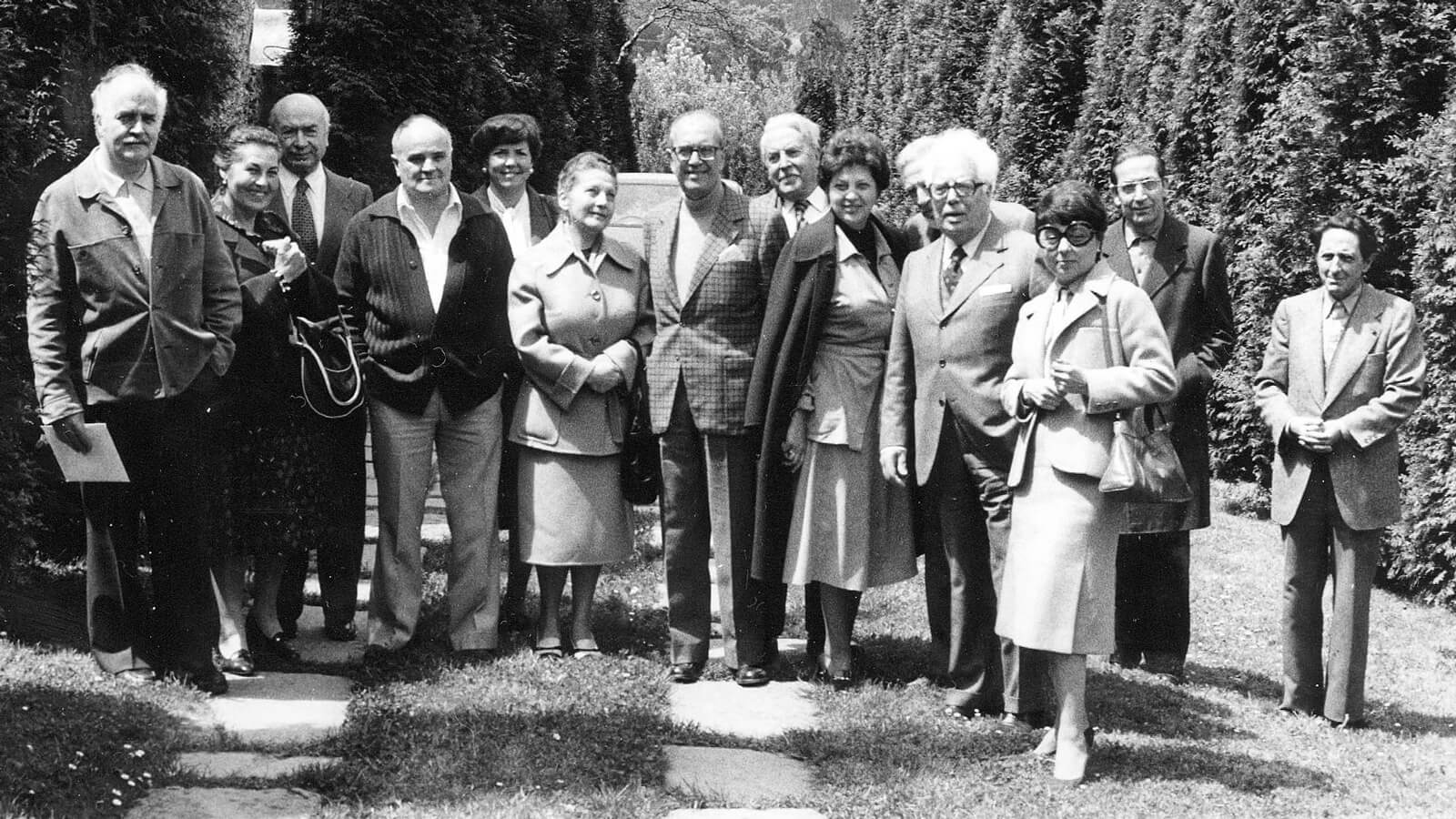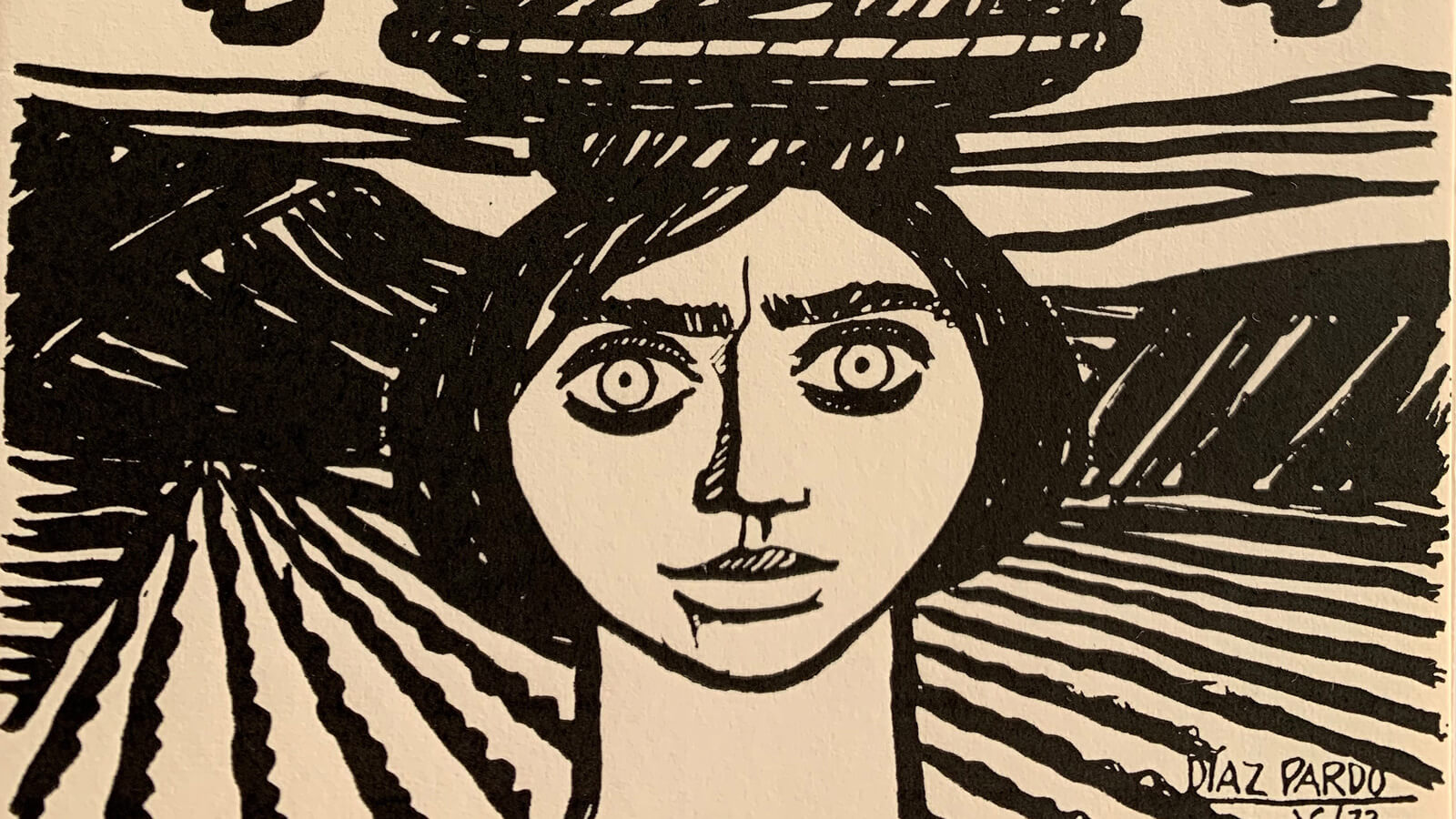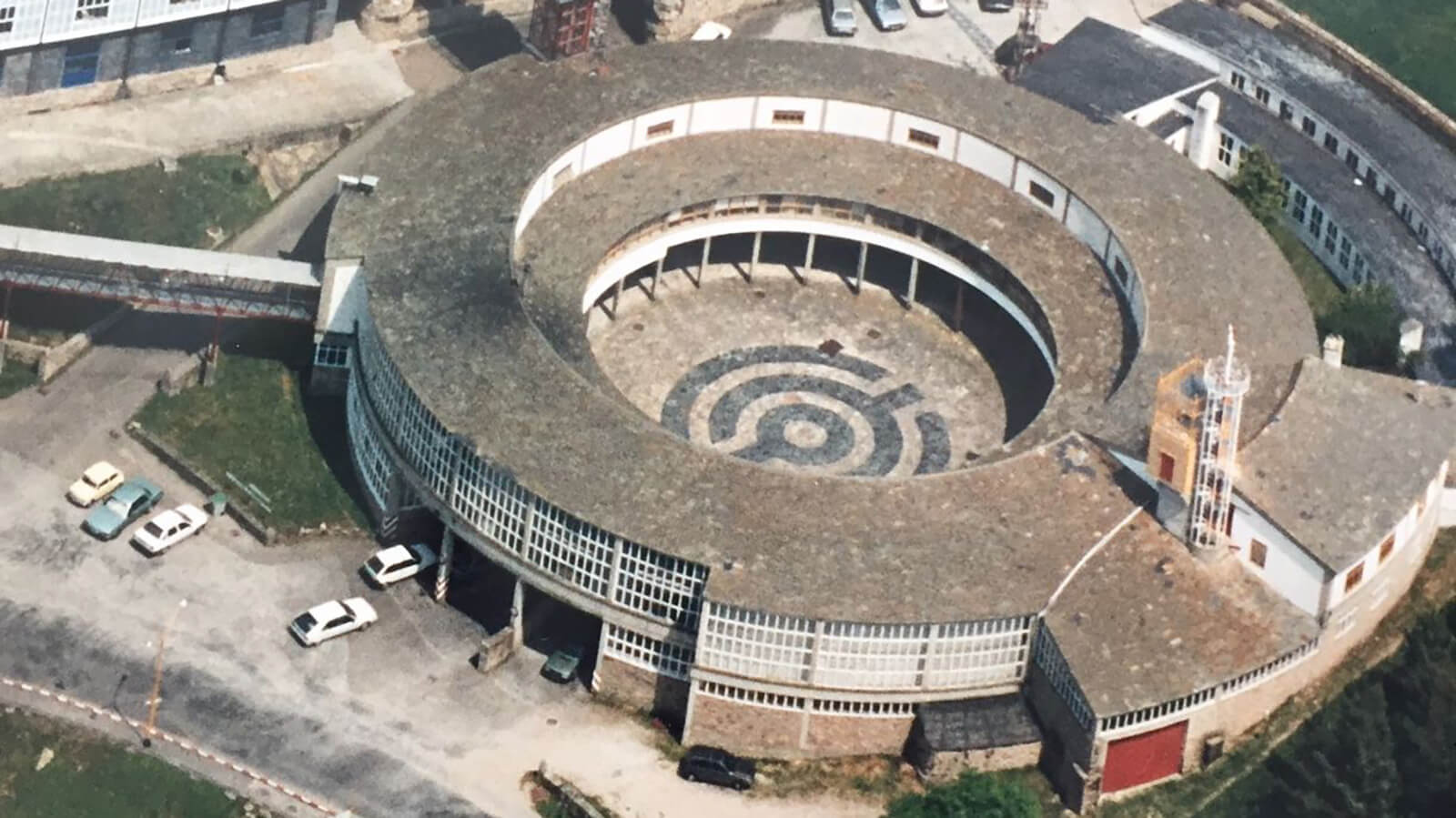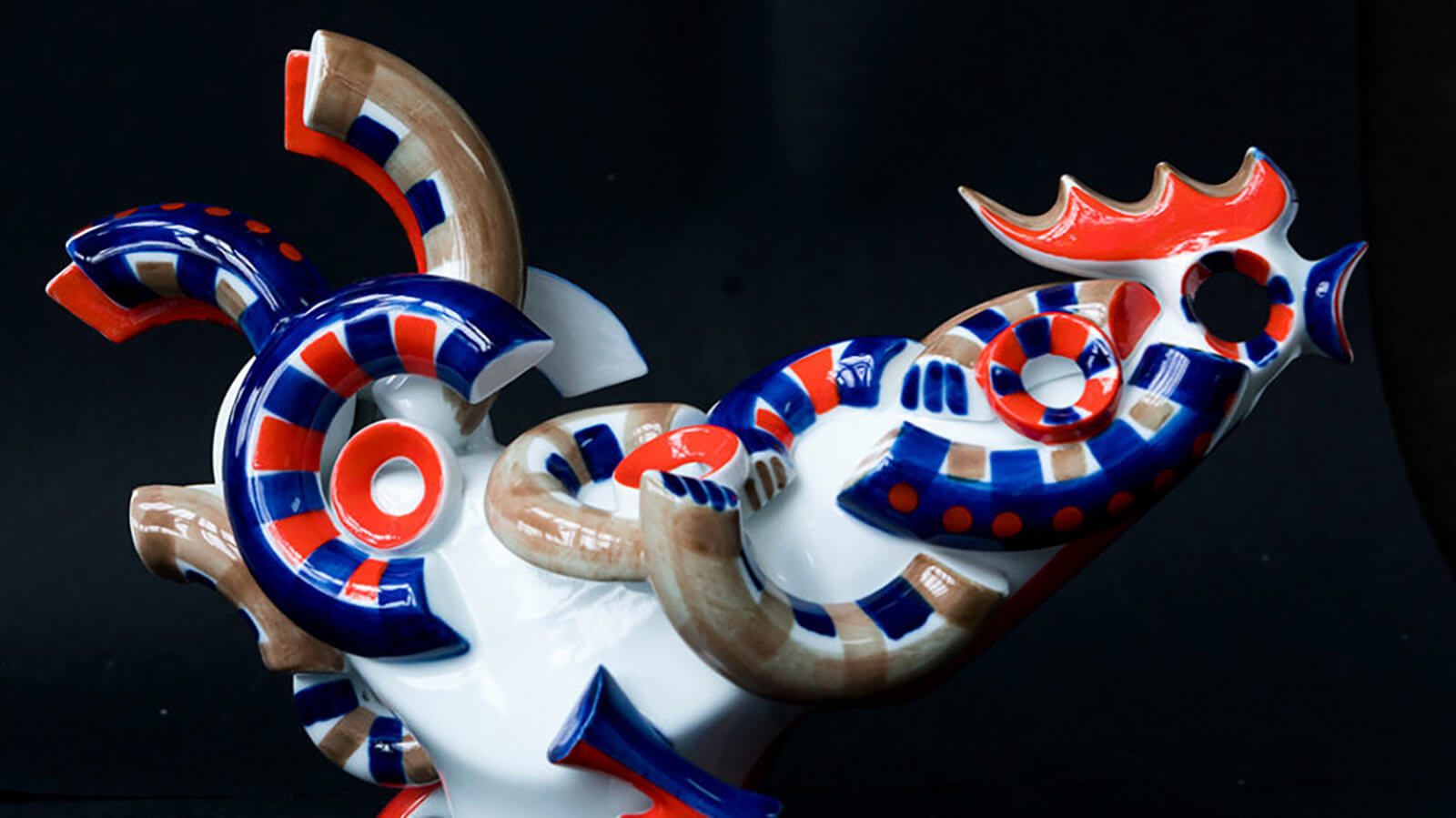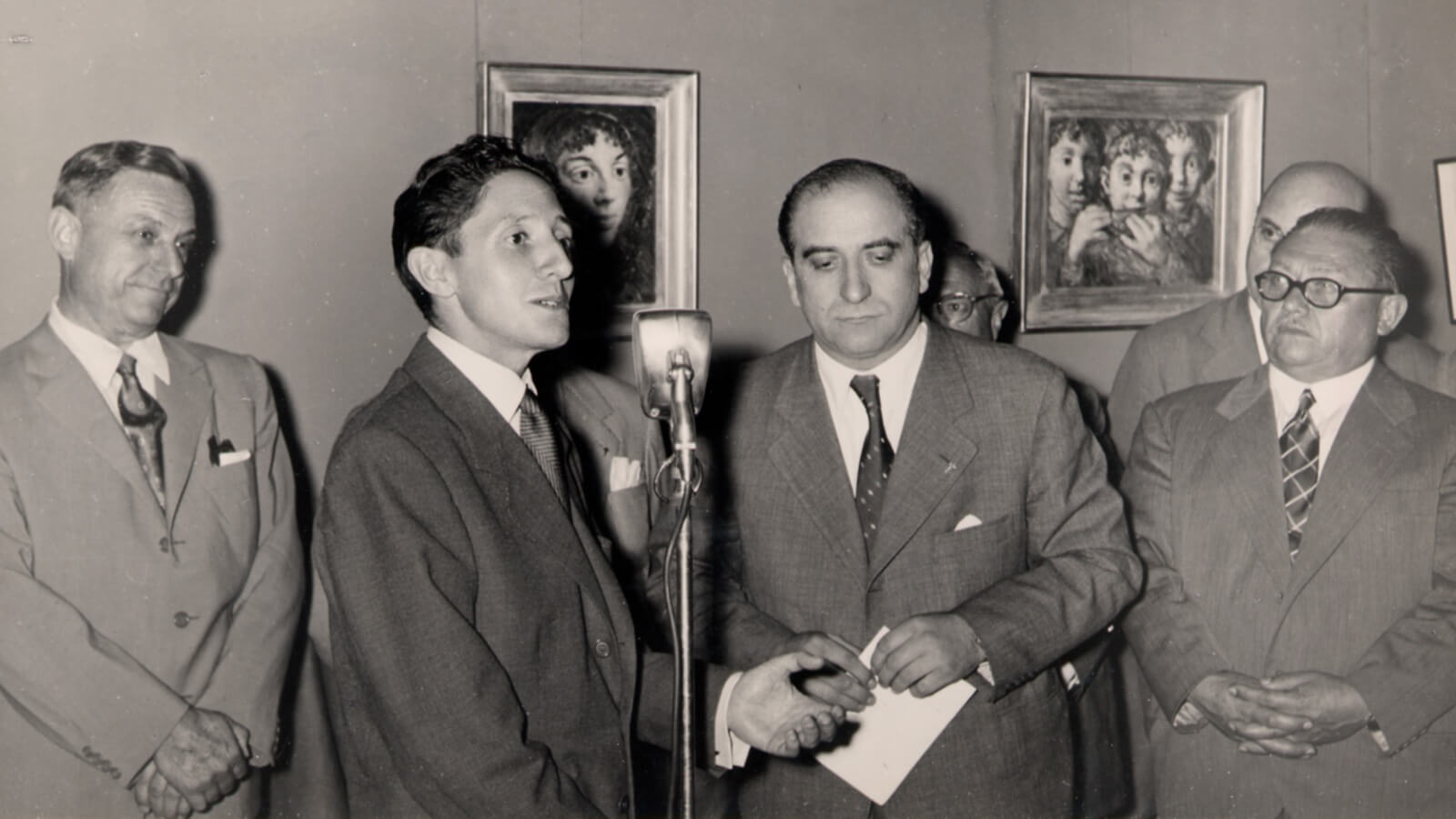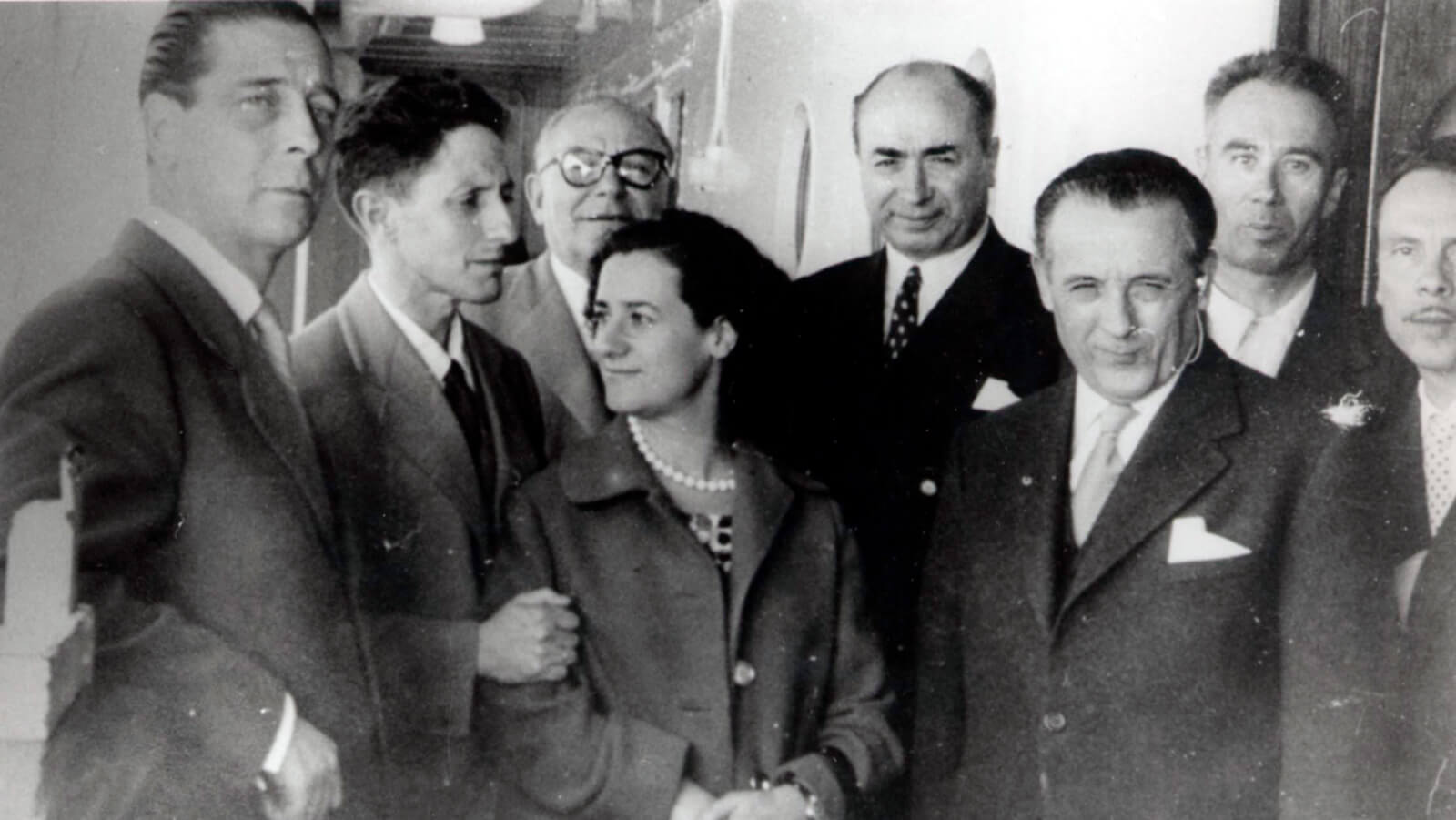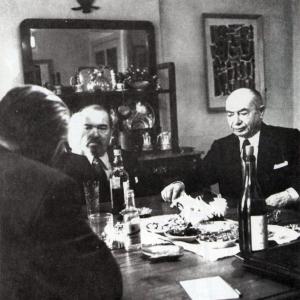Paz Andrade was one of the great personalities of Galicianism in the 20th century, as well as a great businessman, economist and expert in the fishing sector, politician, writer and journalist. After studying law in Santiago, working on a number of Galician periodicals and taking part as a soldier in the Moroccan War, he edited the Galicianist journal Galicia (Vigo, 1922-1926), contributed from its foundation to the maritime magazine Industrias Pesqueras and published his first book on the fisheries sector.
He was one of the great personalities of Galicianism in the 20th century, as well as a great businessman, economist and expert in the fishing sector.
Between 1930 and 1934, he was a militant of Galicianism, first in the Autonomous Group of Vigo and then in the Galicianist Party. He stood without success for Pontevedra as Galicianist candidate in the constituent elections for the Spanish Republic and took part in the drafting of the Draft Charter for Galicia by the Seminario de Estudos Galegos. In 1936, while contributing frequently to El Pueblo Galego, he once more stood without success at the elections to parliament for Pontevedra, as the centrist republican candidate in the party of Portela Valladares.
After the triumph of the military coup in July 1936, he was arrested several times and exiled for a number of years, until he once more moved to Vigo, where he worked as a lawyer, took over as editor of the magazine Industrias Pesqueras and became very active in the fisheries sector, which would make him one of the outstanding professionals in the maritime economy with international experience as a consultant for the FAO, executive and promotor for the multinational company Pescanova and author of excellent publications on the sector.
After the triumph of the military coup in July 1936, he was arrested several times and exiled for a number of years, until he once more moved to Vigo, where he worked as a lawyer.
Also significant is his work as writer of socioeconomic essays, of which Galicia como tarea is one of the best. In it, he supported endogenous economic development as the only means of political redemption for the country. He also produced notable books of poems, literary essays and what at the time was the first and great biography of Castelao.
From the early 1940s Isaac Díaz Pardo forged a strong friendship with Paz Andrade.
Finally, worth noting is his active political participation in the transition to democracy: he formed part of the Committee of Nine that negotiated the political reforms with Adolfo Suárez, and was elected senator in a left-wing democratic candidature in the elections of 1977.
From the early 1940s Isaac Díaz Pardo forged a strong friendship with Paz Andrade, for whom, as he wrote, he felt great admiration and from whom he learnt a great deal. In Ediciós do Castro, among other publications by and about Paz Andrade, there was his biography of Castelao (1982, 1986), a collection of letters (1997) and a facsimile edition of the daily Galicia, the title Díaz Pardo registered for the daily he had planned to publish through the Instituto Galego de Información. Among others working on this project was Paz Andrade.

